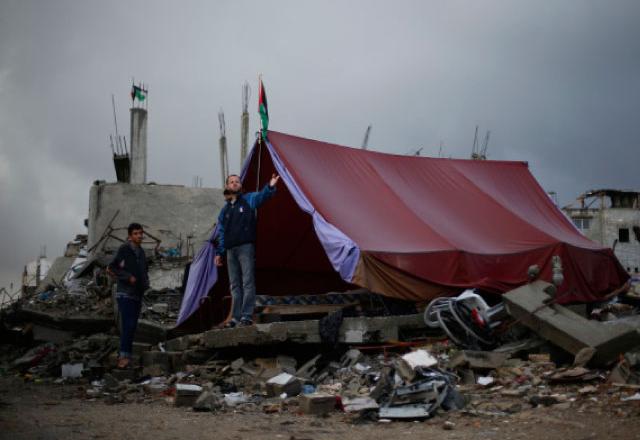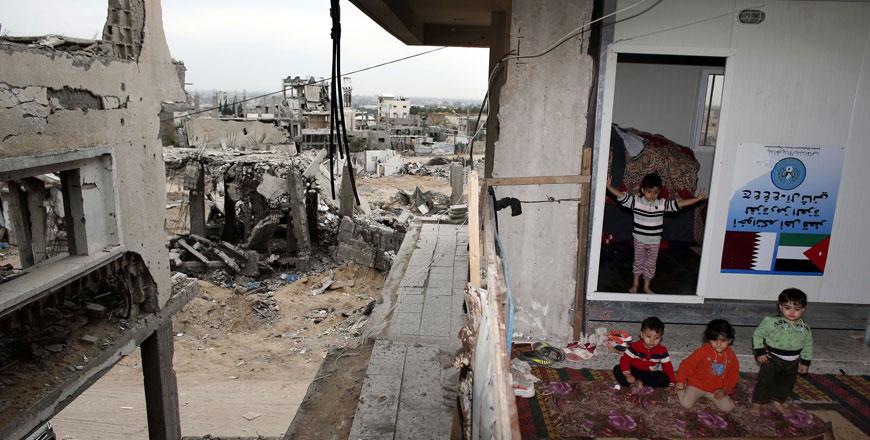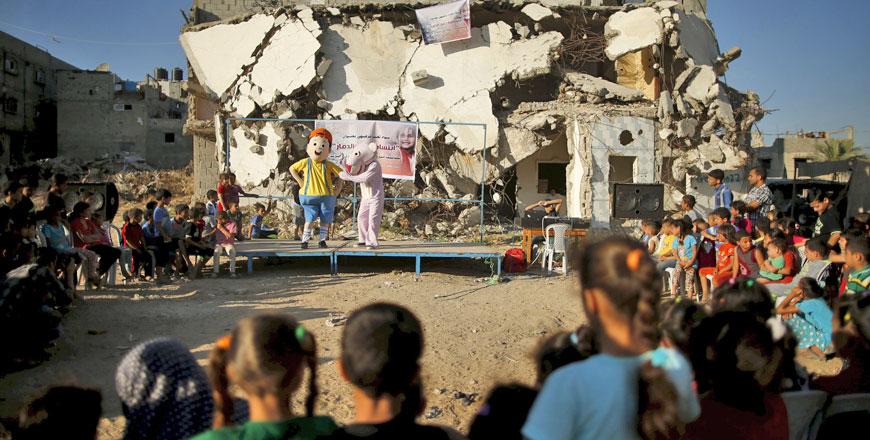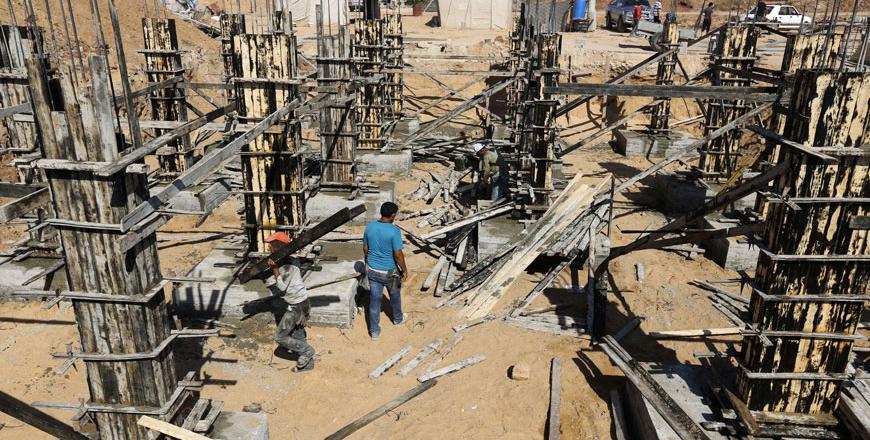You are here
Lack of stability in Gaza risks return to war — UN
By Reuters - Nov 04,2014 - Last updated at Nov 04,2014

GAZA — There is still not an effective or united Palestinian government in place in Gaza and unless stability is achieved rapidly, another conflict will engulf the territory, a senior United Nations official said on Tuesday.
Robert Turner, director of operations for the United Nations Relief and Works Agency (UNRWA) in Gaza, said the extent of damage and homelessness after the July-August war was worse than first thought. The latest estimates suggested reconstruction would take two to three years if all went well, he said.
"I do not see the national consensus government effectively governing Gaza," said Turner, referring to a technocrat Cabinet agreed in June between the Western-backed Palestinian Authority and the Islamist movement Hamas, which dominates Gaza.
"If we do not have political stability, I think if we do not have a national Palestinian government, I think if we do not have at least an easing of the blockade, yes there will be another war," Turner told reporters.
Israel has agreed to ease its blockade on Gaza's borders and allow reconstruction material and other goods to flow more freely into the territory, but it is predicated on the reconciliation government assuming full control in the enclave.
Ongoing differences between Hamas and the Palestinian Authority, particularly over the payment of salaries to Hamas employees, has kept tensions high in Gaza and the flow of goods into the territory has been stalled. After a rocket was fired out of Gaza last week, Israel closed the borders for three days.
Economists in Gaza have estimated that as many as 400 trucks of equipment — from concrete to building materials and machinery — is needed every day for the next six months to meet the demand, but so far only around 75 trucks have made deliveries.
"I know there is frustration at the pace of reconstruction," Turner said, adding that efforts were under way to fully implement a mechanism negotiated by the UN's special coordinator in the Middle East, Robert Serry, to speed up the flow of goods.
Choke points
That mechanism relies on extremely close monitoring of all materials going into Gaza, including GPS tracking and video surveillance of their storage, to ensure nothing goes missing and ends up being used by militants to attack Israel.
"There are a number of weak points, choke points, and the mechanism is one," Turner said. "We need political progress or we will not have the resources to do reconstruction regardless of what mechanism we have."
At a conference last month, international donors pledged $5.4 billion in aid to Gaza's 1.8 million Palestinians, with around half of that earmarked for rebuilding the estimated 80,000 homes damaged or destroyed during the seven-week war.
The conflict, which began after Israel said it was determined to put a stop to constant rocket fire by Hamas fighters into Israel, killed more than 2,100 Palestinians, most of them civilians. Sixty-seven Israeli soldiers and six civilians in Israel were also killed.
While Hamas and people in Gaza have lamented the slow flow of goods, Turner was optimistic that the volume could be greatly increased if political stability could be brought to bear and if Egypt and Israel fully lifted their combined blockade.
Asked if a volume of 400 trucks a day could be achieved, he was positive. "I do not believe the crossing is a problem," he said. "All the technical problems can be addressed. The question for me is that the political choke points be addressed."
"If the political will exists... expanding the crossing to 800 trucks a day is just a matter of paying for the expansion."
Related Articles
Gaza City — In the ruins of what used to be his home, Gaza Strip resident Rabah Abu Shanab reflects on what used to be — and what lit
GAZA CITY — Israel and Palestinians marked one year since last summer's war in Gaza on Wednesday, with a UN official calling for an end to t
GAZA CITY — Palestinian housing minister Mufid Al Hasayneh laid a brick Wednesday for the first Gaza home to be rebuilt since the Israel-Ham














